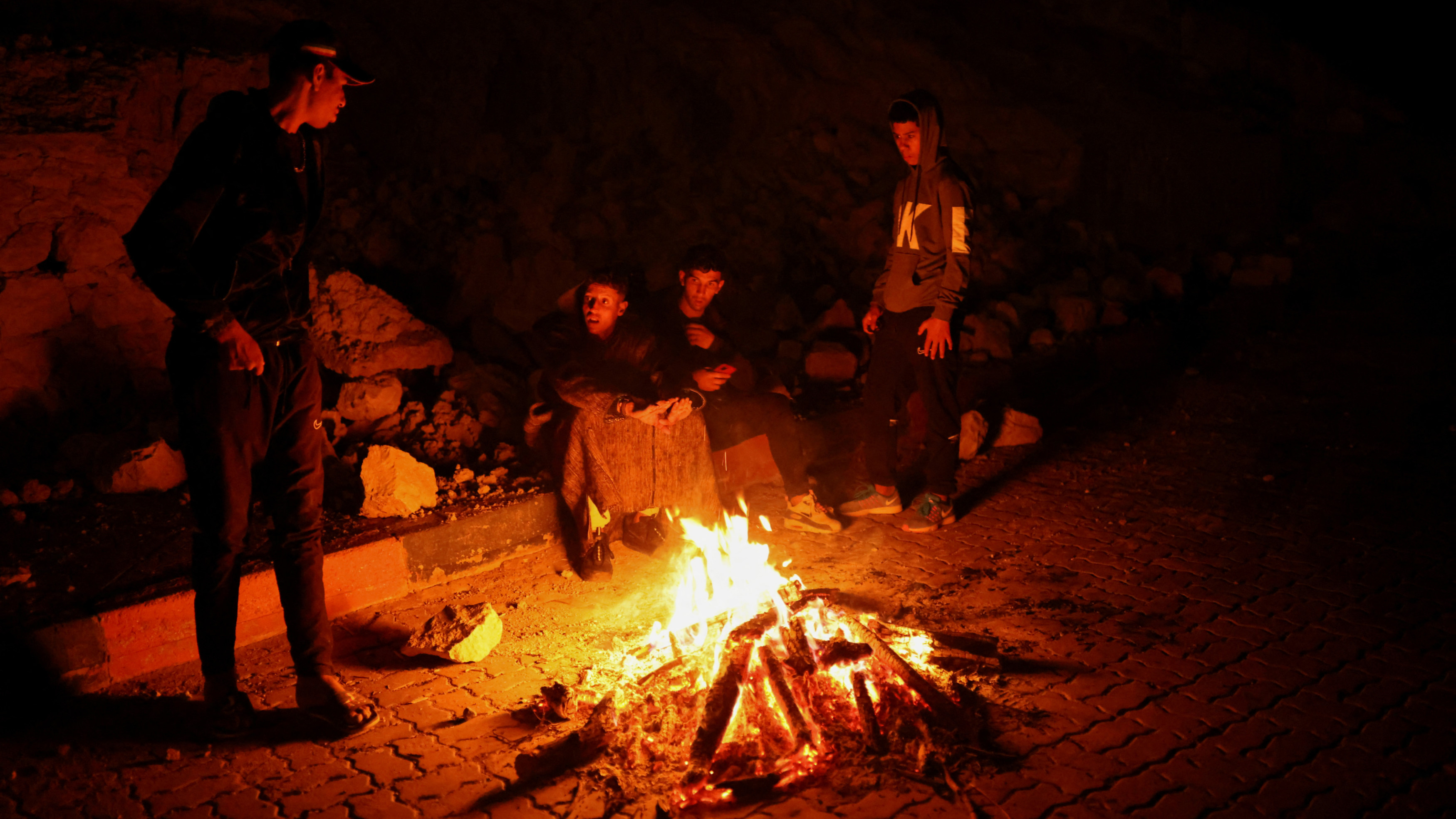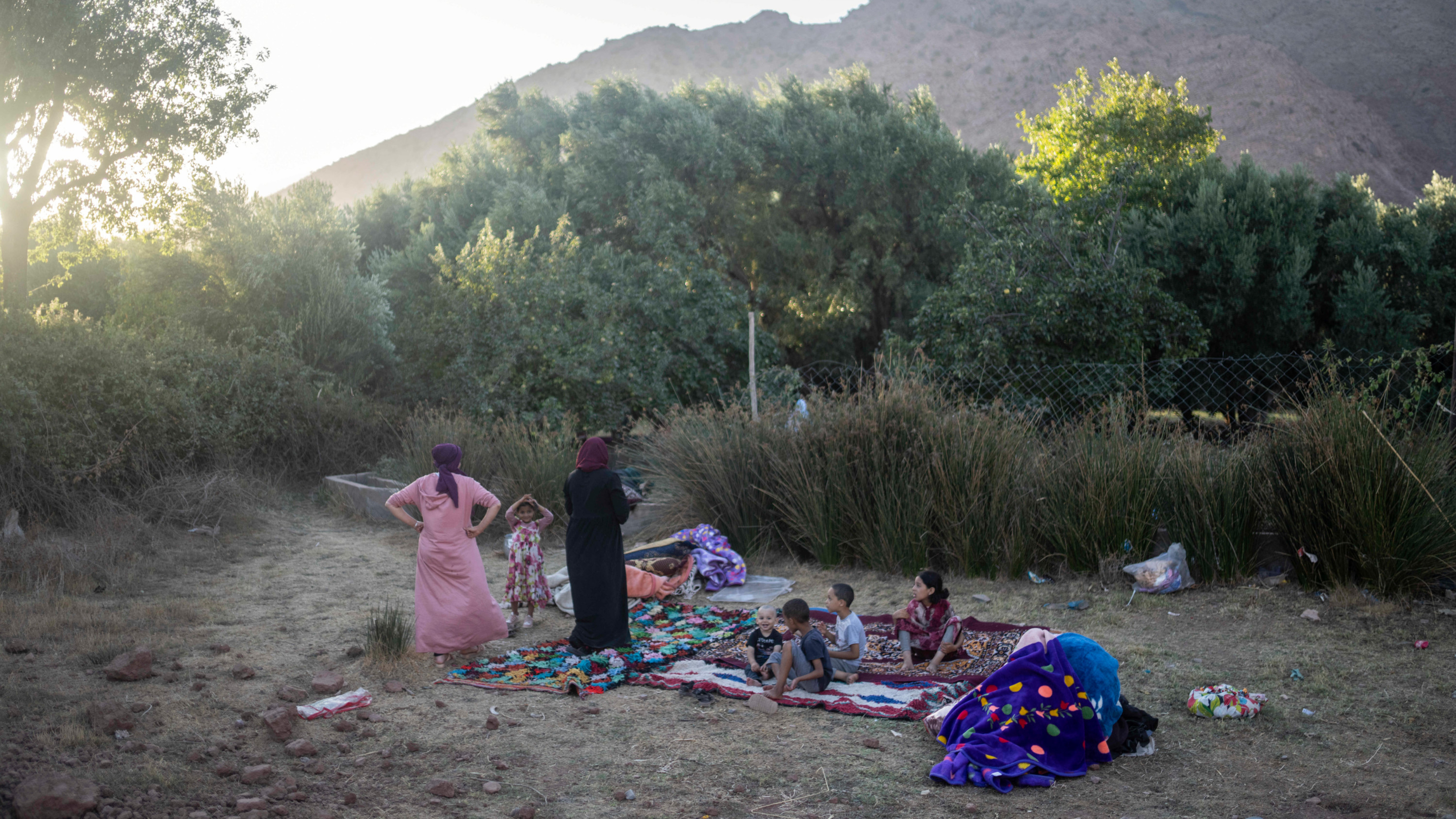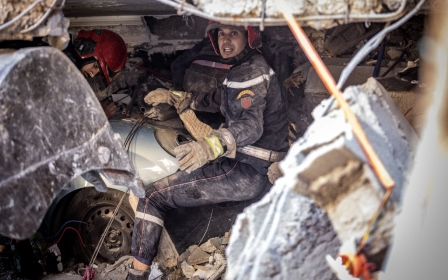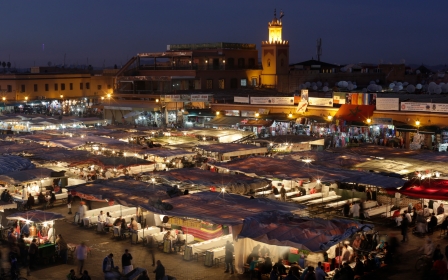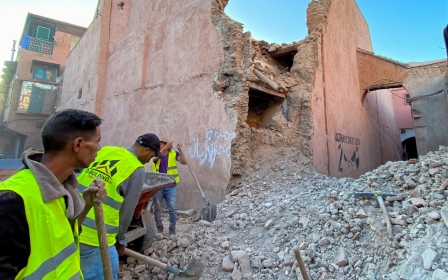Morocco earthquake: Remote and isolated mountain villages struggle to cope
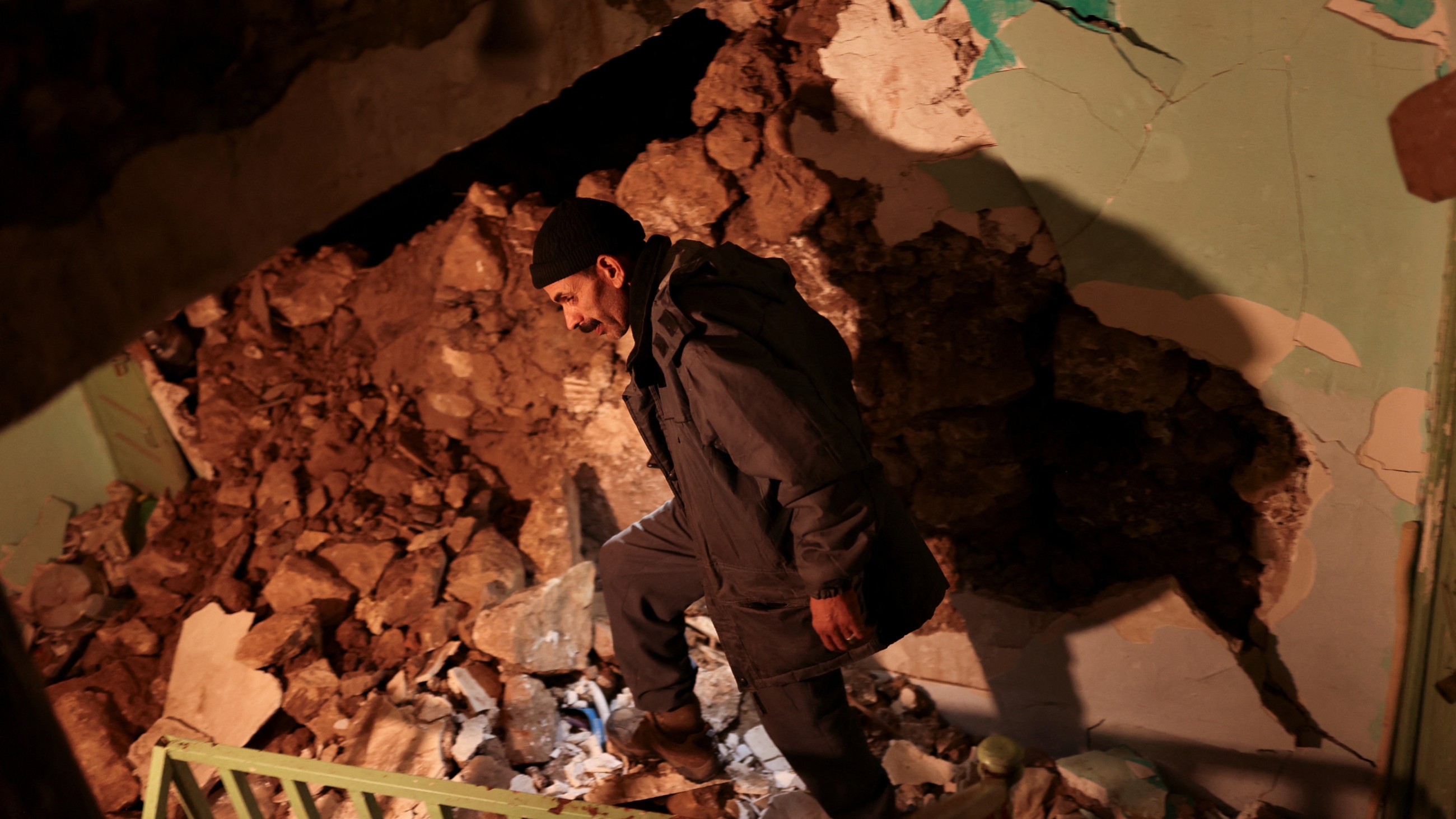
Brahim Boudad spent six nervous hours on Friday night.
His family were in Amizmiz, a small Moroccan town at the base of the High Atlas, while he was some 55km away in Marrakech, when the devastating earthquake hit.
"My family were trapped inside," Boudad told Middle East Eye. "I was waiting [for news] until 1 am. Then my father called me, it made me so happy."
Boudad's family were among the lucky ones. In the small town, at least 25 people are estimated to have died, one resident said. Many houses were flattened.
Amizmiz, home to some 20,000 people, is located in Al Haouz province, the epicentre of the earthquake and the hardest-hit region.
Stay informed with MEE's newsletters
Sign up to get the latest alerts, insights and analysis, starting with Turkey Unpacked
After a day of horrors on Saturday, the evening brought an uneasy pause.
Residents had spent the day looking for survivors using basic tools, as outside help was slow to arrive. People with harrowing experiences gathered in open spaces, with little movements on the streets.
Some people sat in a cafe that opened late into the night. Others laid out on the street sleeping. One kneeled to pray.
"I saw death with my own eyes here," recounted Moustafa, sitting at a crowded plastic table, eating communally with the men around him.
Meanwhile, army vehicles parked along roads and soldiers spread throughout the village. But after nightfall, there was little to be done with the extent of the damage hard to judge in the dark.
"The army? They only arrived later; it was the people here," said Moustafa, as he gestured to the group of survivors camping out in the dirt lot around him.
Mountain towns like Amizmiz are difficult to access in the best of times, slowing any attempt to bring in help. It took five hours for the first outside aid to arrive, even in Amizmiz, which is located at the foot of the mountain range.
'The army? They only arrived later; it was the people here'
- Moustafa, earthquake survivor
Only a short distance away, entire villages collapsed. These are small douars, tiny Amazigh villages, often with just one family.
One man passes around a phone showing a video of the near-total destruction in Tafeghaghte village, where a father spent the day digging graves for his two young daughters.
Already impoverished, and with no outside help arriving quickly, the extent of damage in places like Tafeghaghte is still unclear, but will surely mount.
Inaccessibility to some remote areas was made worse by falling rocks, which blocked roads and cut off villages from each other.
Shock and solidarity
In Agadir city, a three-hour drive southwest of Marrakech, the quake was less severe. Still, the streets were filled with people terrified to enter their homes.
WhatsApp quickly became a lifeline as desperate calls were made to check on family and friends across the country. Information and updates were passed from one group to another.
Many were relieved to know loved ones were safe, but learning that the quake was felt as far as Tangier, and that buildings had fallen in Safi and Marrakech, was an alarming indication of the severity.
'Pray for us because people are so destroyed, our homes are destroyed'
- Brahim Boudad, earthquake survivor
For those who managed to sleep in the morning, waking up to the news of 600 casualties, a number that continued to climb into the thousands as the day went on, was devastating.
News from the mountains close to the epicentre came more slowly due to power outages, blocked roads and connection failures.
Further inland, in Taroudant city, the tremors were more severe. Entire families fled to camps along the road outside the city's walls.
"Yesterday, what happened, we couldn't believe it," one young woman, who didn't give a name, described her night through a phone translation app to MEE.
"We left the house in fear. We slept outside all night."
Many like her spent the second night outdoors, either due to the destruction of their homes or out of fear of aftershocks.
On the other side of Taroudant, the blood bank was filled with people jostling to give blood.
One man, Abdellatif Ezzaki, looks at the time in surprise - he's waited more than two hours to donate.
"It was the first time I've seen such an atmosphere. Everyone in solidarity and everyone ready to help," Ezzaki reflects. "The least we can do is help."
By Saturday evening, the roads into the worst-affected regions of the Atlas Mountains were quiet. A few cars and the occasional ambulance pass in the opposite direction towards safer ground, but the region is poor and many are unable to leave.
In the makeshift encampments, both in the city and the country, the dominant feeling is shock. The country isn't accustomed to earthquakes, particularly of this scale and devastation. But there was little more to say or do other than try to endure another night.
"I want for people to just pray for Morocco, for my location, everywhere," Brahim says. "Just to pray for us because people are so destroyed, our homes are destroyed."
This article is available in French on Middle East Eye French edition.
Middle East Eye delivers independent and unrivalled coverage and analysis of the Middle East, North Africa and beyond. To learn more about republishing this content and the associated fees, please fill out this form. More about MEE can be found here.


